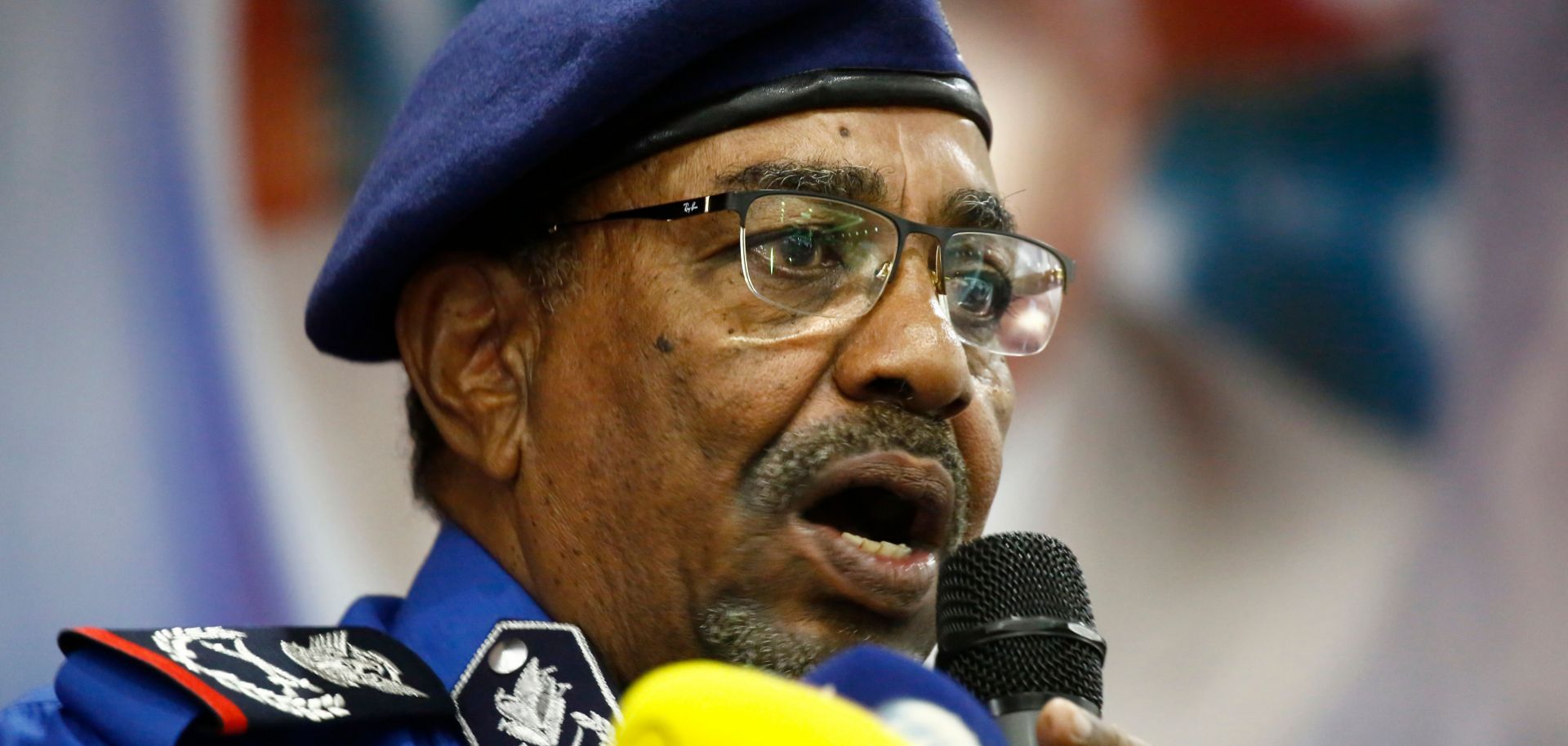GLOBAL PERSPECTIVES
When Stadiums Become Venues for Dissent

Jan 28, 2019 | 09:30 GMT

Sudanese President Omar al Bashir speaks during a meeting with police officials at the headquarters of the "police house" in the capital Khartoum on Dec. 30, 2018. Al Bashir urged the police to abstain from using excessive force against protesters while the United Nations called for an investigation into deaths during violent anti-government demonstrations in the country.
(ASHRAF SHAZLY/AFP/Getty Images)
Subscribe Now
SubscribeAlready have an account?
